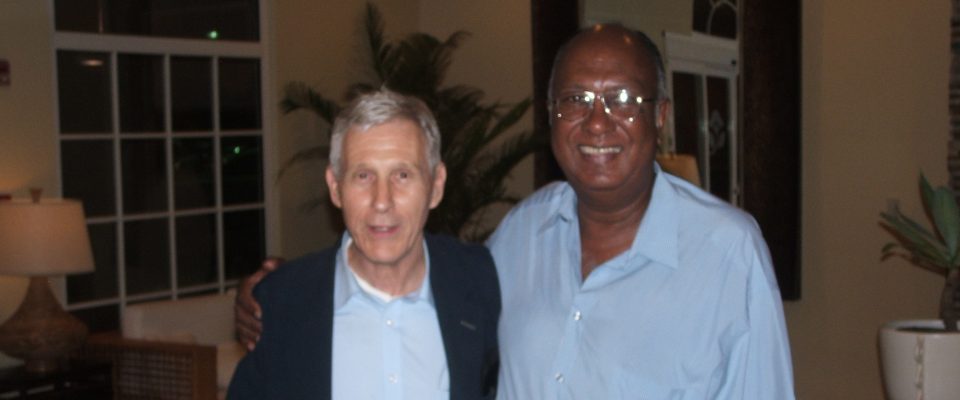From June 29 – July 1, 2013, Lee Havis visited Panama to attend a 50th year reunion of Peace Corps volunteers in that country. For Lee, this was the first time he returned to Panama after serving there as a volunteer from 1966-68. In the Peace Corps, Lee served as assistant professor in the faculty of engineering of the University of Panama in Panama City. During this time, he and native Panamanian professor, Roberto Smith, comprised the faculty’s entire mechanical engineering department which, in 1968, had an initial raduating class of only seven students. Lee recalls the great challenge and difficulty of teaching advanced math and engineering subject matter in the circumstances at that time. This difficulty was even further magnified by his lack of fluency in the Spanish language. Nevertheless, Lee looks back on this whole time in Panama as an important preparation for his later life’s work. He says, for example, “This first teaching experience got me interested in the problems of education, which then led me to the Montessori approach which I took up when I returned to the United States.”
At the Panama reunion, Lee discovered that many of his former colleagues and students had gone on to become prominent leaders in Panama. Some of his students, for example, became quite successful in the country’s growing industry, commerce, and constructive activity, which has now made Panama the fastest growing economy in the region. In addition, some former students and colleagues gained positions of high responsibility in the management and operation of the country’s primary asset, the famous Panama Canal. Lee also became aware of the great changes occurring in higher education in Panama since his time as a Peace Corps volunteer. In the field of engineering and technology, for example, the former faculty of engineering evolved into the establishment of a whole new technology university. In 2013, this new university has now grown to an enrollment of almost 20,000 students attending classes in seven separate campuses around the country.
While in Panama, Lee also learned that soon after leaving the country in1968, one of his associates on the faculty staff, Edilma Moreno, entered the field of early childhood education to ultimately become the national director of education. Now, as di-rector of a commission to reform education in the country, she is in a position of considerable influence to guide future progress in the field. Lee has therefore renewed contact with Edilma to hopefully work with her for a “ new education” in Panama.

